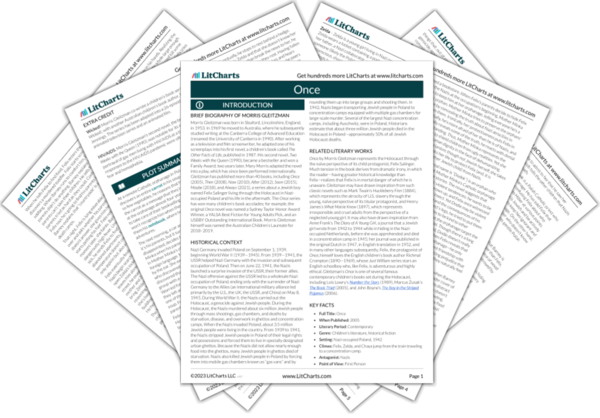The Nazi soldier likely doesn’t speak Polish, a fact that renders Felix’s fast-talking explanations useless. Though the Nazi soldier literally can’t understand Felix’s stories, readers can also interpret the scene figuratively: stories have limited power because some people are unwilling to listen to them or recognize their morals, just as the Nazi soldier is unwilling to recognize the humanity of the young, story-loving Jewish boy whom he’s menacing with a gun.
